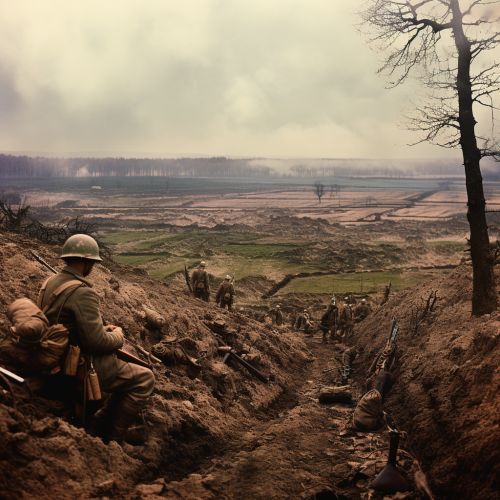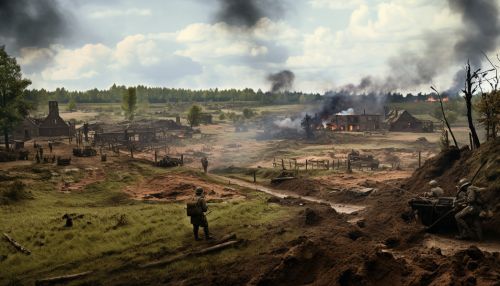European Theatre of World War II
Overview
The European Theatre of World War II was a major area of conflict during World War II, which took place in Europe from September 1, 1939, to May 8, 1945. The conflict was fought between the Allies, primarily the United Kingdom, the Soviet Union, and the United States, and the Axis powers, primarily Germany, Italy, and Japan.


Prelude to War
The European Theatre was set in motion by the political and military decisions of the late 1930s. The Treaty of Versailles, which ended World War I, had imposed heavy reparations and territorial losses on Germany, leading to widespread resentment. This resentment was exploited by the Nazi Party, led by Adolf Hitler, who came to power in 1933 and began to rebuild Germany's military forces in violation of the treaty.
Invasion of Poland
The European Theatre officially began with the German Invasion of Poland on September 1, 1939. Despite a valiant defense by the Polish army, the country was quickly overrun by German and Soviet forces, marking the beginning of World War II.
Western Front
The Western Front was a major theatre of operations in Western Europe during World War II. It saw some of the war's most significant battles, including the Battle of Britain, the Battle of the Bulge, and the D-Day landings in Normandy.
Eastern Front
The Eastern Front was the largest and deadliest theatre of World War II. It was characterized by its unprecedented ferocity, destruction, and immense loss of life. The major battles included the Battle of Stalingrad, the Battle of Kursk, and the Siege of Leningrad.
Mediterranean and Middle East
The Mediterranean and Middle East Theatre was a major theatre of operations during World War II. The Allies fought the Axis powers in North Africa, Italy, Greece, and the Middle East. Major battles included the Second Battle of El Alamein and the Italian Campaign.
End of the War
The European Theatre of World War II ended with the unconditional surrender of Germany on May 8, 1945, known as Victory in Europe Day. The Potsdam Conference in July 1945 determined the post-war order in Europe.
